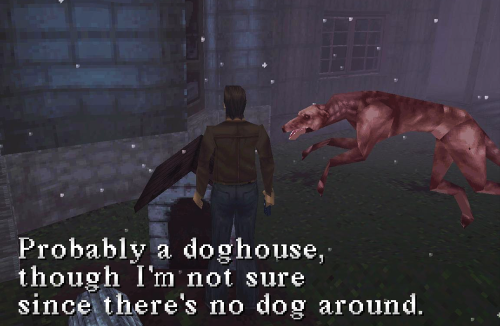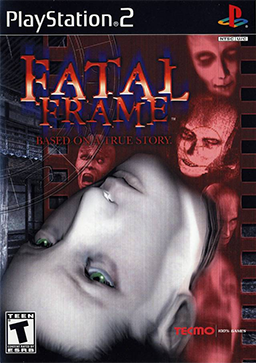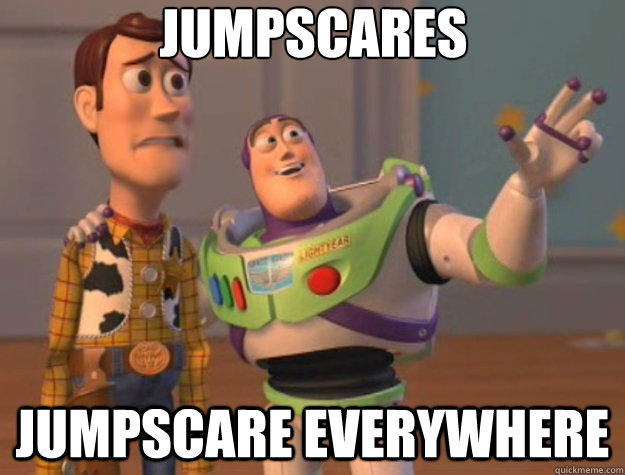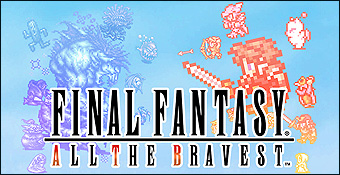Anyone who knows me knows that I am a huge horror nerd. I have seen more horror movies than most people have seen movies, my favorite author is H. P. Lovecraft (the godfather of weird fiction), and I celebrate Halloween like most people celebrate Christmas. So, you could say I know a thing, or two about the genre. It is something that I was fascinated by as a child, and something I continue to be fascinated by as an adult. So, what makes it so fascinating?
Horror Protagonist
The protagonist of any horror tale is always the most important part. That is the role that we as the reader, viewer, player, etc identifies with. The protagonist's job in any genre is to vicariously place us into the situation. To truly pull this off is to make the protagonist as relatable as possible. If your lead role is that of a machine gun wielding, super bad-ass then...where's the horror?
As an example, I'll use Ellen Ripley, from Alien, and Laurie Strode from Halloween. Both of these characters are just normal, everyday people. Ellen Ripley is pretty much the equivalent of a trucker (in outer space). She's just a blue collar worker that was thrown into a horrible situation. Laurie Strode was a teenage, high school girl. She had no super powers, or special abilities. She wasn't that different from me or you, aside from having a mentally unstable, nearly invincible serial killer in her family tree. The reason these people were effective as protagonist was because they were ordinary people thrown into an extraordinary situation.
Not exactly the pillar of gun toting bad-assery.
The video game equivalent of this is probably Harry Mason from Silent Hill. Harry Mason is just your normal, everyday guy who stumbles upon a town that apparently is run by every nightmare anyone has ever had. After waking from a car wreck on the outskirts of town Harry must venture into the town to find his daughter, who went missing after the crash. Hell, the only person of any combat training Harry finds is Officer Cybil Bennet, and her training doesn't account for much in Silent Hill. Which brings me to another point...
If the protagonist of a horror title is a combat trained bad-ass then the threat should be considerably greater than their ability. For example; let's take a look at Resident Evil. In Resident Evil the player takes the roles of either Chris Redfield, or Jill Valentine, two members of a special forces team known as S.T.A.R.S. who must battle through undead monsters to find any survivors of the T-Virus outbreak. While Jill can hold more items, and ammo than Chris, Chris is able to endure more damage than Jill. This is where the horror comes from. Regardless of the character the player assumes the role of they still have major flaws that could prove fatal. If the protagonist is on a level playing field with the threat then the piece segways from horror to action.
Horror Antagonist
The antagonist of a horror title is a bit tricky to pull off since horror can come from many directions. In my experience there are three effective ways to make a convincing horror antagonist.
Horror Antagonist
The antagonist of a horror title is a bit tricky to pull off since horror can come from many directions. In my experience there are three effective ways to make a convincing horror antagonist.
- External- The source of terror is something that is tangible, and can be harmed to some degree. This type is the most commonly used; whether it be zombies, demons, aliens, etc. The external antagonist is usually symbolic of mankind's deepest fear; the fear of death. The Xenomorphs, from the Alien saga, and zombies represent forces of nature that mankind cannot fully control. Demons typically represent a sort of negative afterlife from various religions, and superstitions in which a person is eternally punished for misdeeds in this current life.
- Internal- Internal horror represents the darkest, and most cruel abilities of man. Whether the antagonist be a serial killer, or, in a plot twist, is the protagonist all along, the internal horror plot gives the person participating a look into what they, very well, could be capable of. Internal horror reminds us that, for all our civility and social guidance, we are all just a push away from being blood thirsty barbarians.
- Unknown- In the picture at the beginning of this article is a quote from the author H.P. Lovecraft in which he wrote in a series of essays about horror in literature. I think that quote best describes using the unknown as a plot device. Fear of the unknown is something instinctual in almost all intelligent life forms. It's something that has been passed down as a survival mechanism. It's better to be afraid of, and avoid or destroy something, and be proven wrong than to assume it is peaceful and wind up...well...dead. Take the first Alien film, for example. The viewer rarely even catches a glimpse of the actual alien. We don't know what it is, but we do know it means harm. The fact that we can't see it leaves our imaginations to fill in the gaps. Nothing will fuck with you more than your imagination. Ask anyone that has ever taken LSD.
Atmosphere
Atmosphere is probably the most important part of horror. Atmosphere sets the entire mood, and in horror the overall mood of the audience, player, etc is paramount. The atmosphere of horror can comprise of setting, music, tension between characters, and other subtle queues that make the participant uncomfortable. The entire point of horror is to take people out of their comfort zone. No one is comfortable, and frightened at the same time.
Going back to Silent Hill, that game had a nearly flawless atmosphere (mostly due to technological limitations that I've mentioned before). The absence of nearly all colors aside from gray, brown, and black is very unsettling as they are not familiar. The unsettling atmosphere built up the anxiety in the player for when the monsters finally appeared.
Another example of atmosphere is juxtaposition. There's a little known Italian horror film called Zombie (or Zombi 2 for those in Italy...it's a long story). The bulk of Zombie took place on a beautiful, tropical island. The serene, gorgeous landscape of zombie made the brutality, and violence that much more impacting. Also, a zombie eats a shark. That was pretty cool, too.
In Closing
Fear is an emotion almost all creatures. Human beings have the strange tendency to seek it out. Be it fans of horror, or adrenaline junkies, most people have the desire to be frightened at some point in their life. Maybe it's because we, as a species, have grown to the point that natural fear is not as prevalent as it may have once been. Maybe it's because fear reminds us that we aren't infallible. Maybe some people just enjoy getting the piss scared out of them. There are many answers, and theories as to why some people enjoy being scared. For me, it's just a barrel of fun.
As always, thanks for listening.















